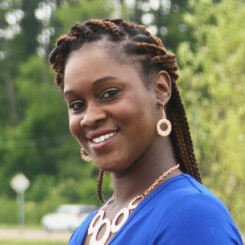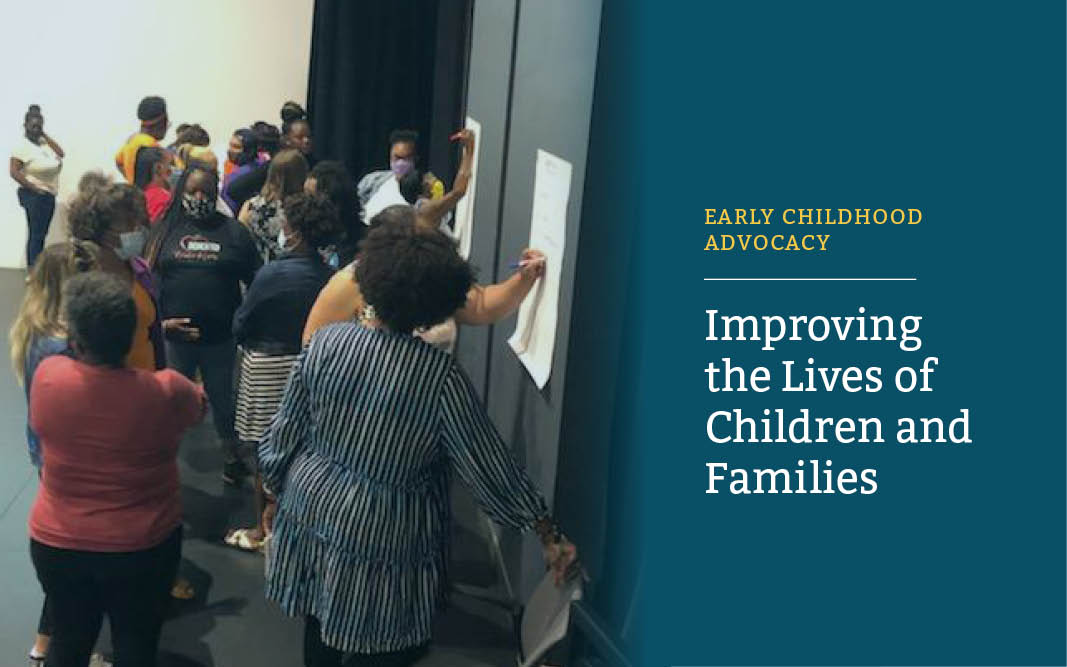
by NaTashia Alexander
Infant/Toddler Action Team Member

Did you know… babies’ brains grow faster between the ages of zero to three years than at any later point in our lives, building the foundation for all future learning, behavior, and health. As a society, it’s up to us to make sure that babies and families have the resources they need to survive: healthy beginnings, supported families, and quality early learning and experiences.
This past August the Birth to Third Grade Action Network: Infant Toddler Advocacy Team hosted a training for Early/Head Start of Forsyth County teachers. My co-worker LaVonya Washington and I took the teachers on an in-depth look into what impacts healthy development of infants and toddlers and the current status of infant/toddler childcare in North Carolina, including our local community. We also talked about how to use this information to better support our infant/toddler childcare providers and explored ways and useful tools that can be used to get involved in advocacy while remaining in our own personal comfort zone.
I know you may be asking: how do I advocate for this cause? Great question! The goal of early childhood advocacy is to improve the lives of children and families. We work together to make sure the programs we work in best support the needs of young children and the early childhood educators that work in that system. Federal and state policymakers rely on everyday citizens and experts to be their resource about issues facing children and families.
Advocacy is public support for or recommendation of a particular cause or policy, standing up for what you believe, sharing your passion, and sharing information and resources about what you know and believe is important for children and families.
You are an advocate if you have ever:
- Helped a family receive needed services;
- Stood up for someone who was being treated unfairly;
- Attended a parent/teacher conference at your child’s school;
- Participated in a city council meeting;
- Tried to change policy at your own program;
- Worked with others to change a program or policy in your own community, or at the state or federal level.
I am sure you can think of some ways you have advocated for children and educators while reading this article; advocacy is not hard and does not take much effort.
During this training we discovered what the issues are surrounding infant and toddler care in our great state, as well as how to use the knowledge we have gained to inform our policymakers about how change can be made. We also know that if we do not advocate for our children and families, who will?
I encourage you to join us and get involved in advocating for young children, families, and their educators by connecting with the NC Early Education Coalition and other early childhood advocates and organizations around the state. It is free to sign up for the alerts with the NC Early Education Coalition. Staying informed about the issues and relaying those issues to the right people is some of the best help you can be to your community. We plan to continue offering this training to any individual or group until all of Forsyth County is advocating for our young children and early educators.
Photographs from the recent Infant/Toddler Action Team advocacy training. The Infant/Toddler Action Team is part of the Birth to Third Grade Action Network.
